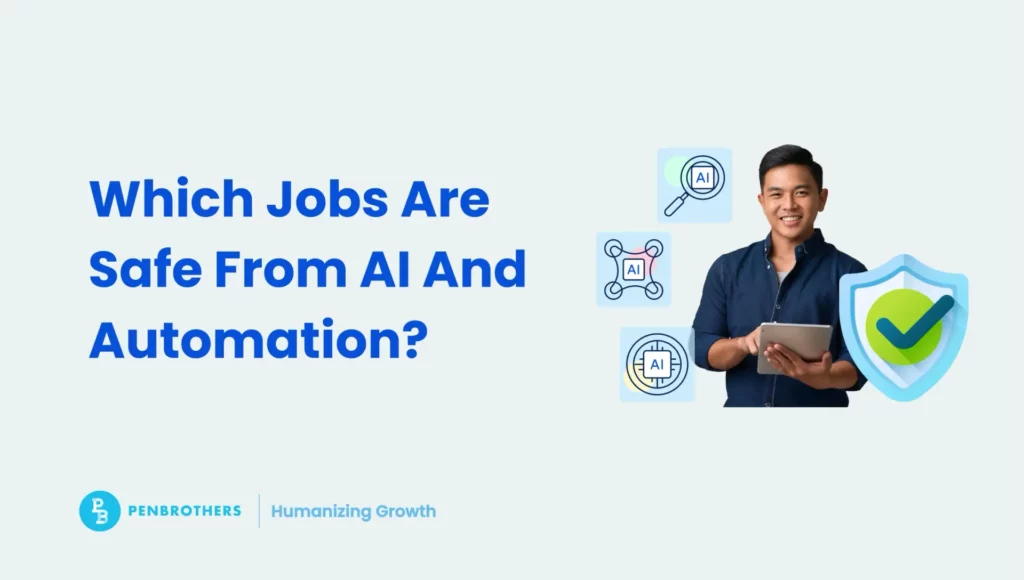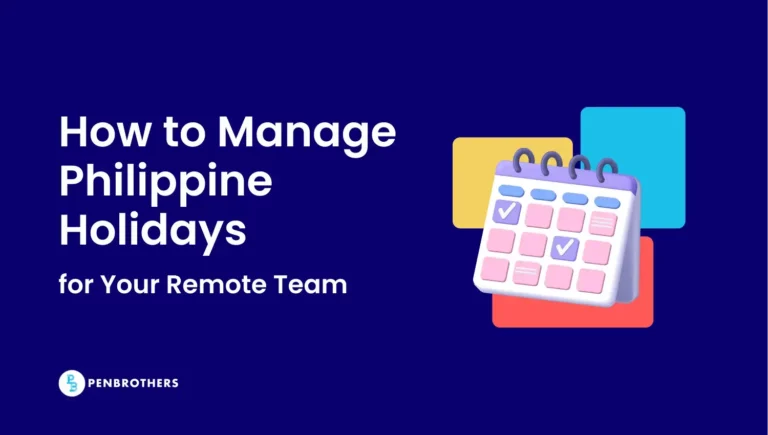Key Takeaways
- Human-Centric Skills are the Key Differentiator: Jobs are considered “AI-proof” not because they are non-technical, but because they fundamentally require skills that are uniquely human. These include emotional intelligence, ethical judgment, complex problem-solving with ambiguous information, and the ability to build trust.
- Focus on Roles That Require Nuanced Judgment: The roles that are most resilient to automation are those that involve interpreting complex situations and navigating human dynamics. This includes professions like Project Managers, Cybersecurity Analysts, Customer Success Managers, and Human Resource Specialists.
- AI is a Tool, Not a Replacement, in These Key Fields: In professional sectors like healthcare and law, AI can assist with tasks like diagnostics or research, but it cannot replace the core human element. The essential functions of empathetic patient care, client advocacy, and ethical decision-making remain firmly in the human domain.
- Career Resilience is Built on Developing Human Strengths: To make one’s career more secure in an AI-driven world, the focus should be on developing “human-centric” skills. This means investing in abilities such as leadership, empathy, conflict navigation, and creative courage, as these are the qualities that automated systems cannot replicate.
In an era of rapid technological evolution, Artificial Intelligence (AI) continues to transform the workforce landscape. However, several jobs remain relatively safe from AI disruption. Here is a list of AI-proof jobs, along with an analysis of the specific roles and why they are less likely to be augmented by AI.
What Is an AI-Proof Job?
The question is not what jobs AI cannot do. The better question is what kind of work still requires a human being at the center. AI can outpace us in speed, accuracy, and scale. But it cannot care. It cannot build trust in uncertain moments. It cannot sense tension in a conversation and respond in real time. An AI-proof job demands emotional depth, ethical judgment, and a strong understanding of people. These are roles where outcomes are not fixed, and context matters.
These jobs do not exist because AI has failed. They exist because humanity is the advantage. Whether it is a project manager guiding a team through ambiguity, a therapist adjusting to a patient’s silence, or a customer success manager hearing what is not said, these roles require presence, not just intelligence. They make space for contradiction, emotion, and complexity. AI can assist, inform, and predict. But it cannot lead where it lacks understanding. That is what makes these jobs essential, not just resilient.
1. Project Manager
An essential role that requires complex problem-solving skills is project management. Project managers are responsible for coordinating teams, managing resources, and ensuring that projects are completed on time and within budget. They must navigate interpersonal dynamics, address conflicts, and make decisions based on incomplete or ambiguous information—tasks that require human intuition and experience. The ability to work remotely is a significant advantage, allowing project managers to oversee teams and projects across various locations.
2. Cyber Security Analyst
Another role that calls for problem-solving expertise is a Cybersecurity Analyst. As cyber threats become more sophisticated, the demand for skilled cybersecurity analysts has surged. While AI can assist in detecting and mitigating threats, it lacks the nuanced judgment required to understand complex security landscapes fully. Human analysts are crucial in interpreting AI-generated data, understanding the broader context, and making decisions that consider the potential consequences of different actions. Moreover, the evolving nature of cyber threats requires a deep understanding of human behavior and intent, something AI struggles to replicate. This role can often be performed remotely, making it an attractive option for those seeking flexible work arrangements.
3. Customer Success Manager
Customer success managers (CSMs) play a vital role in ensuring that clients achieve their desired outcomes while using a product or service. This role involves building and maintaining relationships, understanding client needs, and providing personalized support and guidance. While AI can assist with basic customer interactions, it cannot replicate the empathy and deep understanding that a human CSM brings to the table. The nuances of customer relationships, especially when dealing with complex issues, require human insight and emotional intelligence. Many CSM roles can be performed remotely, making this an ideal position for those who value flexibility.
4. Human Resource Specialists
Human resources roles focus on understanding and managing employee needs, conflict resolution, and fostering organizational culture. Although AI can assist with applicant tracking and performance evaluations, it cannot replace the human touch in handling sensitive interpersonal matters. Essential skills for HR professionals include emotional intelligence, mediation skills, and cultural competence. Building and maintaining a strong organizational culture is reliant on human interaction and understanding.
One of the in-demand roles under this category is HR specialists. HR specialists are responsible for recruiting, training, and managing employees, ensuring that the workforce aligns with organizational goals and values. While AI tools can streamline certain HR tasks, such as resume screening and scheduling interviews, the strategic aspects of HR—like understanding company culture, managing employee relations, and making ethical decisions—require a human touch. The role of an HR specialist often involves navigating sensitive issues that demand empathy, discretion, and judgment, which AI cannot provide. Furthermore, many HR tasks, particularly in recruitment and employee management, can be performed remotely.
5. Ethical and Legal Advisors
Roles in ethical and legal advising remain safe from AI disruption due to the nuanced understanding of laws, ethics, and complex regulations required. AI can aid in legal research and document review, but the interpretation of laws, ethical considerations, and client advocacy requires human expertise. AI-powered legal research tools make it easier for lawyers to find key precedents and statutes, giving them more time to focus on strategy and client advocacy. Key skills include critical thinking, ethical judgment, legal knowledge, and strong advocacy abilities. The ability to navigate complex legal landscapes and provide personalized advice is critical in these fields.
6. Healthcare Professionals
While AI can assist in diagnostics and treatment planning, the healthcare industry heavily relies on the human touch. Nurses, therapists, and medical professionals provide empathy, care, and support that AI cannot replicate. Essential skills include medical knowledge, empathy, communication, and patient care. The ability to understand patient needs and provide compassionate care is fundamental to the healthcare profession.
A good example of a role under this category are occupational therapists. Occupational therapists help individuals of all ages to overcome physical, mental, or emotional challenges, enabling them to perform daily activities and improve their quality of life. This role involves personalized care plans tailored to each patient’s unique needs and circumstances. While AI can assist with data tracking and therapy recommendations, the hands-on care, emotional support, and adaptive thinking required in occupational therapy are beyond the capabilities of current AI technologies. Although not typically a remote role, teletherapy options are becoming increasingly available, offering some flexibility in how these services are delivered.
How Do I Make My Career AI-Proof?
If you are waiting for certainty, you are already behind. The people who will thrive in an AI-driven world are not those with the most technical skills. They are the ones who are hardest to define. They ask better questions, lead with empathy, and adapt when the path ahead changes without warning. Making your career AI-proof is not about resisting change. It is about becoming the kind of person no system can replace. Because no matter how advanced AI becomes, it cannot connect with another person and make them feel seen, understood, and empowered. That is your edge, if you choose to develop it.
Ask yourself: What do I offer when the data is unclear? When people are afraid? When there is no obvious answer? Your future will not be secured by what you already know. It will depend on how well you evolve. That means investing in your human strengths, not just technical ones. Learn to navigate conflict, build culture, create meaning, and move people. AI might change the tools we use, but it will not replace the need for leadership, emotional intelligence, or creative courage. These are the skills to strengthen now before the future demands them.
Related pages: Hire a Structural Engineer to Turn Designs to Safe Builds
Conclusion: Prioritizing Human-Centric Roles
In conclusion, while AI continues to advance and automate various tasks, there are specific roles that remain distinctly human and safe from AI disruption. For hiring managers and teams, focusing on roles that require creativity, emotional intelligence, complex problem-solving, and human interaction can ensure that businesses continue to meet their goals while leveraging the unique strengths of their workforce. Prioritizing human-centric roles will not only safeguard jobs but also drive innovation and success in an AI-driven world.
Frequently Asked Questions
An “AI-proof” job is one that relies on skills that artificial intelligence cannot easily replicate. These are primarily human-centric abilities such as emotional intelligence, empathy, complex problem-solving with incomplete information, ethical judgment, and the ability to build trust and navigate interpersonal dynamics.
Roles that are centered on complex human interaction and nuanced judgment are the safest. Good examples include Project Managers, Cybersecurity Analysts, Customer Success Managers, Human Resource Specialists, Ethical and Legal Advisors, and Healthcare Professionals like therapists and nurses.
No, in these fields, AI is more likely to act as a powerful tool that assists professionals, not replace them. For example, AI can detect security threats, but a human cybersecurity analyst is needed to interpret the context of the threat and make a final judgment call. Similarly, AI can track tasks, but a human project manager is needed to manage team dynamics, motivate people, and resolve conflicts.
You should focus on developing your uniquely human strengths. This includes improving your skills in leadership, empathy, navigating conflict, building a positive culture, and creative problem-solving. These are the abilities that add the most value in situations where data is unclear or a human connection is essential.
Not at all. Many of the jobs listed as being safe from AI, such as Project Manager, Cybersecurity Analyst, and Customer Success Manager, are frequently performed remotely. The safety of a job from automation depends on the skills it requires, not on its physical location.






